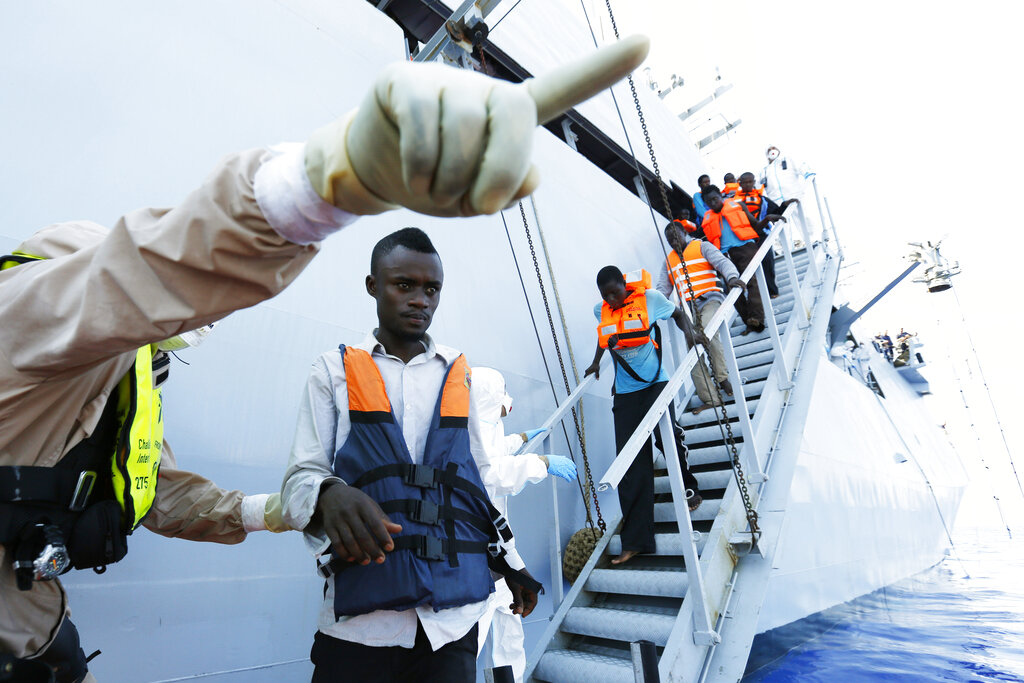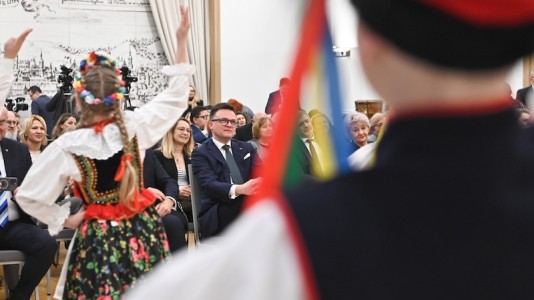Recently, Giorgia Meloni has come up with a radical solution that she expects will ease the migratory pressure on her country. The Italian prime minister has proposed a €5.5 billion investment package to help African countries, which she says would boost their economies to the point where people could find work locally and stop emigrating. We know that faith moves rocks, but naivety drops them on our heads.
The so-called “Mattei Plan” has been praised by Ursula von der Leyen, the president of the European Commission, which, for those who are a little more familiar with politics, may in itself be proof that it will not provide any solution to the migratory pressures. It is 10 years this year since the Italian Coast Guard relaunched the “rescue” of migrants in the Mediterranean, which began the process of flooding Europe with economic migrants.
During the decade of the Soros plan, EU organizations have not had a single effective solution to curb migration, and have only been able to unite to punish and exile those member states that oppose it. So, if von der Leyen gives her blessing to a migration initiative, you can be sure that it will only benefit the traffickers.
Africa’s problem is not a lack of investment. Businessmen and companies are lining up to get their hands on the natural treasures in their countries. Africa has potential sources of income that we in Central Europe can only dream of. However, as long as these societies suffer from chronic corruption and produce an endless chain of civil wars based on religious and tribal conflicts, it is a fairy tale that a few billion euros could solve their problems. Poverty and the demographic explosion are not the cause, but the pathogenesis of the endless series of problems that make Africa a major migrant-emitting power.
How Meloni’s €5.5 billion will not stop any migrant boat from leaving is shown by the fact that the European Union already has a so-called Global Gateway Africa economic stimulus package from 2021, with a budget of €150 billion. This is 27 times the amount of Meloni’s package, but I do not think anyone needs to be convinced by particularly complex empirical methods that this colossal sum has not stopped the migrant ships. The Italian prime minister’s optimistic slogan is that “the smugglers invest in human desperation, we invest in opportunity.”
Frankly, if I could buy shares in the investment of the traffickers or the “opportunities” being promoted by Meloni, I know I would put my money in the former to get a return on my investment. However, the Italian leader sounds good, and she’s cooking up the kind of slogans Europe needs right now.
Let no one think that I am against investment in Africa, where hundreds of millions have been lifted out of abject poverty by the economic boom of recent decades. The Hungarian government has also been saying for years that help should go where the trouble is, but that is obviously not to be interpreted as meaning that business links or aid make effective border controls unnecessary. For many years, the EU and many of its member states have been using their aid programs in Africa as a fig leaf instead of proper border protection measures. They are pouring billions of taxpayers’ money into ineffective placebo projects and the pockets of corrupt dictators, while in reality they are playing a dangerous demographic pyramid scheme at the expense of European societies.
[pp id=93415]
Economic investment in the Third World and strict border control can only work together. Anyone who wants to use one without the other in the hope that it will stop migration is extremely naive. Meloni’s €5.5 billion plan is doomed to fail before a single penny has even landed in Africa, while at the same time, how many schools and hospitals could be built for Italian citizens with that amount of money? You could transfer this money directly to the account of the people smugglers, and it would make no difference in the number of boats arriving. It is not surprising that von der Leyen is also pleased with the initiative, as the staggeringly costly pseudo-measures that have replaced border protection have become almost synonymous with Brussels’ notion of “European values.”
While we wish all those who wish to trade with Africa well, let us make one thing clear: It is not our moral duty to solve the endless crises on the Black continent.
However, as much as Western colonialists have rampaged through Africa over the past centuries, we are not responsible for the vast majority of their current problems — especially not us Hungarians. Therefore, we do have the right to reject illegal immigrants and even to deport them back by force.
The Africans have no moral right whatsoever to invade the country that our ancestors fought for and built. This is our country, and no one should come here to make amends for the real or perceived grievances they suffered centuries ago.






